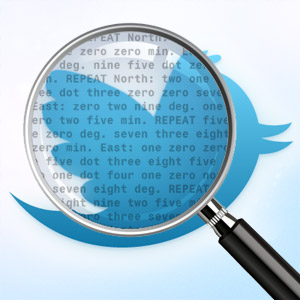 NEWS
NEWS
 NEWS
NEWS
 NEWS
NEWS
![]() In the past, when you wanted to learn about what’s happening around you, you grabbed a newspaper. Then came the radio and television and they added even more news sources. When the cyber age arrived, it opened a whole new world for journalists as the news or articles they write can now be viewed all over the globe, provided that access to them wasn’t blocked.
In the past, when you wanted to learn about what’s happening around you, you grabbed a newspaper. Then came the radio and television and they added even more news sources. When the cyber age arrived, it opened a whole new world for journalists as the news or articles they write can now be viewed all over the globe, provided that access to them wasn’t blocked.
This was great, but then journalists had to deal with more competition. They had to figure out a way for them to stand out, to get noticed, and not get drowned by all the noise. Journalism is not just writing about anything you want. It’s about writing something informative that could potentially slap people in the face so they can wake up from the lies they’ve made themselves believe.
When social media emerged, some people thought that it was a threat to journalism since some people rely on them, such as Twitter, to get real-time information regarding special events, such as the election, or when disaster strikes.
Though people can quickly disseminate information via Twitter, the platform is limited. You can’t go into detail as to what’s happening because the character you can use are limited, unless you tweet like crazy and tweet every single thing happening. But that’s just too much.
Twitter and journalism actually go hand in hand. Twitter is now used by journalist to deliver quick information as well as tweet links to articles they wrote. Plus, with the use of Twitter, a journalist can increase their reader-base. If an article is really interesting, it gets retweeted by one of your followers who may have more followers. And because of Twitter, people are now getting more interested in what’s happening to other countries, other people, raising awareness for a cause and many more. Though a lot are still glued to reading celebrity gossip, when fans of celebrities see them tweet something about calamities, animal maltreatment, politics, they become more interested.
Also, Twitter can help journalists with their writing, like correct them if they made mistakes, commend them for a great article, or share more sources or provide inside information.
Though Twitter seems to be a journalist’s BFF, it can be their foe. People use Twitter and other forms of social media to spread false information that could cause panic and chaos. So we shouldn’t believe anything we read on Twitter. That’s why it was very important that Twitter allowed users to tweet links to articles, at least readers can check if what they’ve read was from someone credible.
To learn more about the how Twitter and journalism affect one another, watch this quick video about The Impact of Twitter on Journalism.
Support our mission to keep content open and free by engaging with theCUBE community. Join theCUBE’s Alumni Trust Network, where technology leaders connect, share intelligence and create opportunities.
Founded by tech visionaries John Furrier and Dave Vellante, SiliconANGLE Media has built a dynamic ecosystem of industry-leading digital media brands that reach 15+ million elite tech professionals. Our new proprietary theCUBE AI Video Cloud is breaking ground in audience interaction, leveraging theCUBEai.com neural network to help technology companies make data-driven decisions and stay at the forefront of industry conversations.